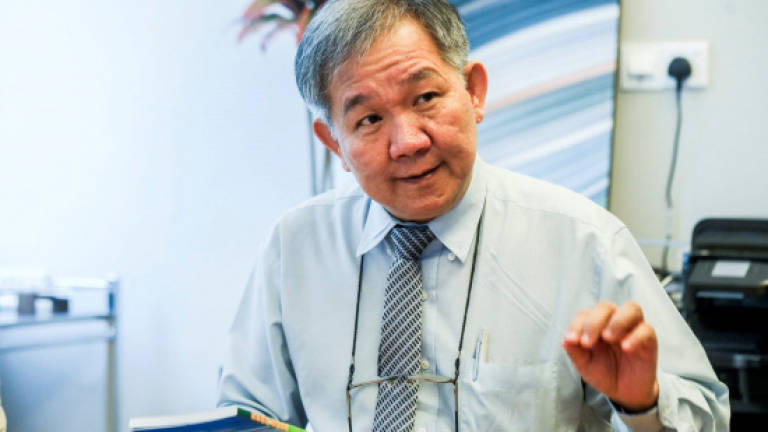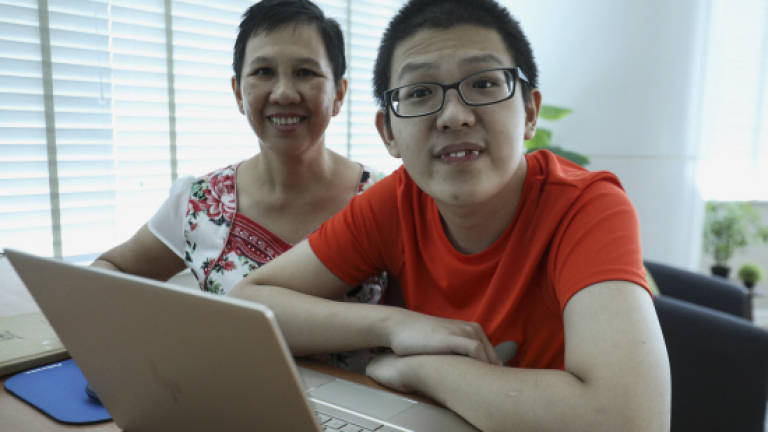Tapping into the untapped


HAVING spent over 25 years in the fields of psychology and education, Dr Ng Meng Lek (pix, right) shares of his long and storied history with the development of children. “I am concerned about children learning,” Ng says solemnly. “Because if a child can not learn, they will have problems in school. I also have a very strong belief that character and moral development are much more important than academic performance.”
After building a legacy helping children from poor families in Singapore, from themid-90s to mid-2000s, Ng became a sought after authority on child psychology and educational psychology. In 2012, he started developing NeuroLAT, a web-based programme which he introduced to the US and formally launched to great reception in 2016.
Developed as an Artificial Intelligence (AI) programme, NeuroLAT functions in the way that a self-learning AI theoretically would. When a child or user makes their first attempt on NeuroLAT, they are faced with a set of questions appropriate to their age.
“Each time the child accesses the programme, he or she will be confronted with five questions pertaining his or her ability. If the child takes a long time to answer, our ‘back office’ will decide whether the difficulty level of the programme should be reduced,” says Ng. From there, the programme will then generate questions suitable to the child’s level.
“The programme levels are initially based on the age of the user; it then scales up or down according to the user’s aptitude.” In short, the NeuroLAT programme adjusts the subsequent batch of questions appropriately, stepping up in complexity if a user manages to answer the questions efficiently and accurately. Questions are drawn from a pool of over a million inquiries, each tailored to the user’s aptitude.
There is a degree of flexibility and diversity with how each NeuroLAT user is trained, >Training children to assimilate necessary abilities considering that no two persons are the same. This flexibility can be seen as somewhat of a welcome as although the programme was created with regular children in mind, it has managed to alleviate the problems faced by individuals with special needs, such as those with autism.
The first person in Malaysia to have a go at NeuroLATwas a 22year-old youngster by the name of Loi TekWah (pix, above), diagnosed with autism. Having spent most of his life exhibiting everything there was between communication and character issues, Tek Wah underwent drastic, positive changes quite quickly after using the programme.
Drawing parallels between a child’s brain to a computer, Ng explains that a child using the programme will not be able to perform certain tasks if they are lacking essential abilities or if those “abilities” have not been sufficiently trained.
“Like a computer; let’s say you have a corrupted software and it is Photoshop. You can use every function except colourisation, because the file for it is corrupted. Until you repair that file, you can’t perform tasks that require its features.”
Similarly, Ng points out that humans are naturally able to carry out a multitude of functions, and that students require 39 abilities to best process the knowledge that comes with schooling. These abilities include working memory, photographic memory, detailed memory, observation, evaluation, problem solving and logical thinking, and that NeuroLAT is designed to train all these, through the pool of questions it puts forth.
When queried if the programme would work on the elderly, Ng confirms it would, but that they’re better off keeping their motor and cognitive skills active and staving off degenerative ailments through other means, such as table tennis.
However, Ng says children can benefit best from NeuroLAT, given how malleable their minds are at a tender age. “The earlier you train, the better the results. The younger one starts, the better, because they’re at the stage of developing.”
Ng’s programme is not meant as a crash course teaching children to swallow copious amounts of information without a shred of critical thinking or understanding. Instead, it places emphasis on training children to assimilate the necessary abilities required in learning, not memorising, but by tapping into latent, untrained cognitive abilities.
“Training of the abilities is totally different from content teaching. We need to help children learn and not just memorise everything. Whether the child is ready for school depends on whether they have the abilities to learn,” Ng explains.
Ng, along with the team at NeuroLAT will be conducting talks on March 3 and 4 in Kuala Lumpur and Penang respectively. To book a seat, visit www.neurolat.com.my. – by Mark Mathen Victor